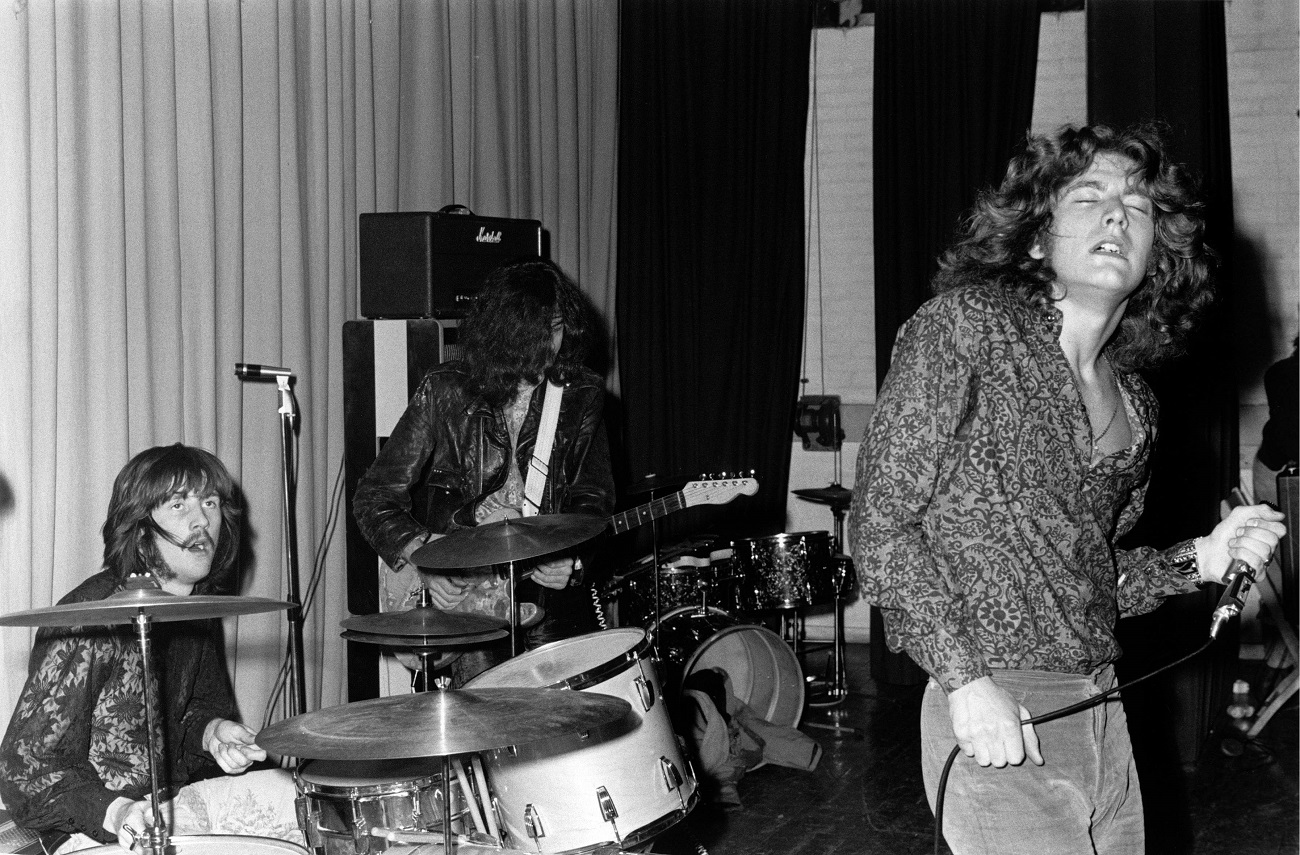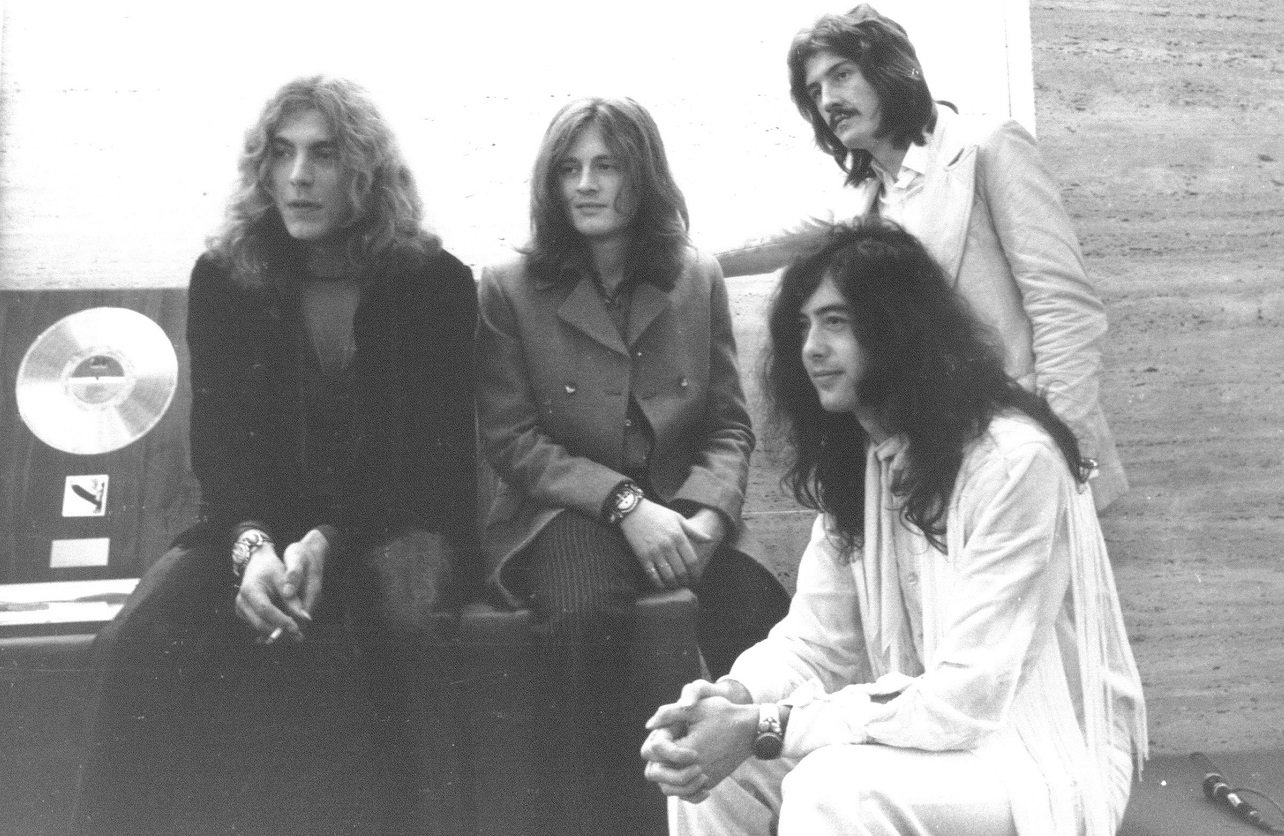The Classic ‘Led Zeppelin II’ Track Zep Recorded Live in 1 Take
What was the difference between Led Zeppelin and The Beatles? For one thing, Zep’s studio approach was far less tedious. You aren’t going to hear about Zep running through 100 takes of a song, as the Fab Four did once on a discarded White Album track.
“The most we ever do is four takes,” John Bonham once said (via Led Zeppelin in Their Own Words). “And we’ll probably decide on the first or second because the feel was probably better.” If you dig into Zep’s recording history, you see that Bonham wasn’t boasting.
“In My Time of Dying,” the powerhouse blues from Physical Graffiti (1975), counts among Zep’s masterpieces recorded live in the studio. Though Jimmy Page later added solo guitar tracks, you are hearing the band as it played together with Robert Plant singing along in the studio.
The Zep didn’t build up to that practice in the latter half of its career. On Led Zeppelin II (1969), the quartet cranked out one of that record’s highlights in a single take, with Plant singing live in the studio.
Led Zeppelin recorded ‘The Lemon Song’ in 1 spectacular take

Led Zeppelin II was a smash hit, and you can see why from the opening tracks. After the wallop of “Whole Lotta Love,” the Zep delivers “What Is and What Should Never Be,” which counts among bassist John Paul Jones’ favorites. Then comes “The Lemon Song.”
Though the band didn’t originally say so in the credits, “The Lemon Song” was a reworking of Howlin’ Wolf’s “Killing Floor.” And the Zep rendition flips back and forth between the slower blues sections and its Jimi Hendrix-inspired metal sections.
Obviously, the track serves as a showcase for Page, whose solos light up the mix at various points of the 6:20 runtime. But the other members of the band match Page’s energy and virtuosity. Jones delivers one of his greatest performances as Zep’s bassist here.
The performance you hear on record — outside of Page’s guitar solos — went down in one live take at Mystic Sound Studio in Hollywood in May ’69. As Page once pointed out, it was the same tiny studio where Ritchie Valens and other legends had recorded before Zeppelin.
Sound engineers even recorded the final echo on Robert Plant’s vocals live

You may be wondering about the effects on Plant’s vocals at the close of “The Lemon Song.” The track ends with “floor” echoing several times. In Led Zeppelin All the Songs (2018), the writers quote engineer Chris Huston, who said he added the vocal delay in the studio. So they recorded that live as well.
When you hear Zep studio stories like this one, you see how the band recorded its debut album in about 30 hours. On that record, the band also recorded live with Plant. Jones (keyboards) and Page (guitar) would have had to overdub their solos, but generally they got it down in a few takes.
This also explains Zeppelin’s crushing live performances. The band often recorded tracks it had worked out on the road, so there was minimal adapting necessary to deliver the same version back to a live audience. In 1969, the Zep was knocking out rock stars who saw their shows.


